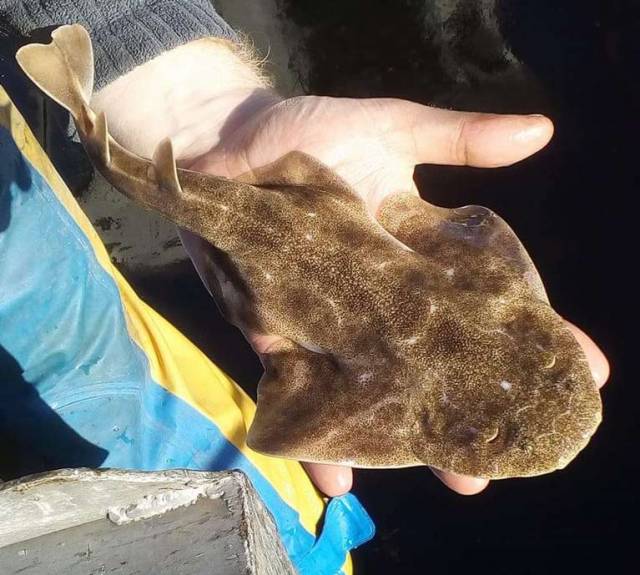Angel shark are in such a perilous state of decline in Irish waters that a group of marine environmentalists has appealed for urgent action by Minister for Fisheries Michael Creed writes Lorna Siggins
Sharks, rays and skates are the most threatened seafish in Europe, and several species of shark caught in Irish waters are on the “red list” of endangered species issued by the International Union for Conservation of Nature (IUCN).
However, the marine scientists say that inaction by the State over the fragile angel shark populations in Kerry’s Tralee Bay and Mayo’s Clew Bay in particular has compounded the situation.
The Irish Elasmobranch Group is a not for profit grouping of scientists and researchers chaired by Dr Kevin Flannery of Dingle, Co Kerry.
It is focused on protecting Ireland’s elasmobranchs – as in sharks, rays, skates and any cartilaginous fishes with five to seven gill openings on each side.
Angel shark - so named because their fins resemble angelic wings- hunt in sandy shallow bays, and have the ability to hide in the sand as they wait for flatfish to eat.
Declining numbers have prompted the scientists to set up a working group, involving the Marine Institute and Inland Fisheries Ireland among others.
The spurdog, porbeagle shark and angel shark are “critically endangered”, while the basking shark is “endangered”, and the shortfin mako, blue shark and hammerhead shark are “vulnerable”
The group has called on Mr Creed to revise legislation to ensure there is no targeted fisheries of any elasmobranchs permitted in Irish waters, either by commercial vessels or by sea anglers.
Last year, a Spanish fishing vessel, Virxen da Blanca (italics) was detained in Irish waters with over 168,000 kilos of “bycatch” shark on board while “ fishing for tuna”.
A special sitting of Clonakilty District Court last September heard the vessel had 164,250kg of blue shark, 98kg of mako shark and 1,250kg of shark fins on board.
Shark fins can fetch a high price in Asia, where they are used in sharkfin soup. The fins are often removed while the shark is still alive and it can then no longer swim effectively and either suffocates or is eaten by other predators.
The scientists say that the maximum permitted “bycatch” of elasmobranch species should be set at 30% of catch onboard, for all EU vessels fishing in Irish waters.
It also says that rays and skates should be excluded from discard regulations on landing all by-catch. Instead, these fish should be returned to sea where their survival rate can be still quite high – unlike many finfish.
The group says Ireland should request that the EU ensure that the shortfin mako shark is listed as a prohibited species. Currently there are no limits to shortfin mako sharks being caught in EU waters and they do not even have to be logged as such.
It has asked Mr Creed to enact “clear and firm legislation for the increased protection of sharks in Irish waters”.
A Department of Agriculture, Fisheries and Food spokesman said Mr Creed supported all five of the group’s recommendations, but believed that a bycatch of all of these species should be “considerably lower” than the 30 per cent proposed.
The group did not make “any specific proposal” relating to the angel shark, but Mr Creed would be happy to consider same in consultation with the National Parks and Wildlife Service, the spokesman said.
The department said that both it and the Marine Institute are working on “ways to improve the protection of the critically endangered angel shark in Irish waters”, and Ireland recently supported a proposal from the Government of Monaco that angel shark be included in annexes I and II of the Convention on the Conservation of Migratory Species.
This “provides a framework to enhance protection for this migratory species”, it said.































































